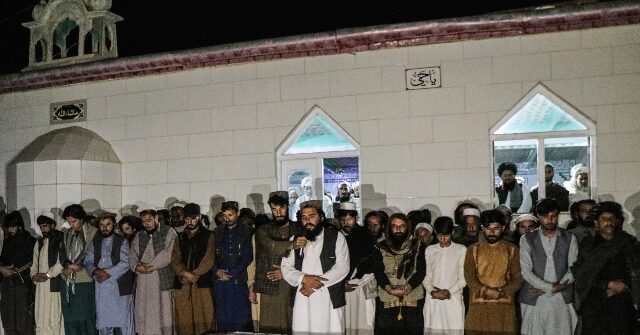The Taliban regime in Afghanistan said on Wednesday that over a dozen civilians were killed during overnight clashes along the border with Pakistan.
The Pakistani military denied targeting civilians and claimed it was repelling “unprovoked” assaults from Afghanistan. Both sides tentatively agreed to a 48-hour ceasefire on Wednesday to stabilize the situation, but it was quickly broken by new reports of violence.
Afghanistan and Pakistan have been skirmishing for years due to tribal and ethnic rivalries that sprawl across their border. Some of the tribes living in the area do not recognize the border, drawn in the late 19th Century when Britain ruled India, including the territory that became Pakistan in 1947. There are tribes largely based in Afghanistan who have centuries-old claims to land in the Pakistani border region, and vice versa.
The governments of Afghanistan and Pakistan do not feel their border is “soft” or open to negotiation with tribal leaders. Kabul and Islamabad further accuse each other of harboring enemy populations bent on committing mischief across the border.
Pakistan is particularly concerned about two groups: ISIS-K, the Islamic State franchise in what the extremist group refers to as “Khorasan Province,” and Tehreek-i-Taliban Pakistan (TTP), also known as the Pakistani Taliban.
ISIS-K is an adversary of the Taliban as well, but Islamabad accuses the Taliban regime of not doing enough to combat the group in the border region, and even of sheltering ISIS operatives who focus their murderous activities on Pakistani soil. The Taliban, in turn, claims Pakistan is sheltering ISIS-K militants who are determined to overthrow the regime in Kabul. In short, each side accuses the other of wielding ISIS terrorists as a weapon against its neighbor.
Pakistan is even more worried about TTP, whose avowed goal is to overthrow the Pakistani government and install an Islamist “caliphate.”
Pakistan long supported the Taliban insurgency after the U.S. invasion in 2001, and former Prime Minister Imran Khan congratulated the Taliban for overthrowing the “shackles of slavery” by seizing control of Afghanistan after President Joe Biden’s disastrous withdrawal in 2021 – but the Pakistanis soon came to regret their embrace of the Taliban as TTP stepped up its attacks on Pakistani soil, its fighters now brandishing American weapons abandoned in Afghanistan by Biden.
Pakistan began evicting Afghan migrants in 2023 due to the security threat they posed, enraging the Taliban. Relations between Pakistan and Afghanistan hit a new low after the Taliban refused Pakistan’s demands to take action against TTP.
Pakistan took matters into its own hands on October 9, violating Afghanistan’s airspace to launch airstrikes against TTP and other militants camped near the capital of Kabul.
The Taliban denounced the airstrikes as “unprecedented, violent, and reprehensible.” The Pakistani military was coy about taking responsibility for the strikes, but also firmly insisted it would strike again if the Taliban did not “put its house in order.”
“You are not a non-state actor anymore, you have to act like a government. You need to make this a border, like any other border between two countries. It needs to be controlled,” Pakistani Lt. Gen. Ahmed Sharif Chaudhry lectured the Taliban.
The Taliban responded with attacks against several Pakistani border outposts, with dozens of casualties incurred on each side. Skirmishes have continued throughout the ensuing week, leading up to the bloodshed on Wednesday.
Even the shaky ceasefire announced on Wednesday was a topic of contention, with each side insisting the other had begged for mercy and requested a cessation of hostilities. Each side claims to have killed hundreds of the others’ soldiers and tribal fighters while suffering relatively few casualties themselves.
Pakistan claims to have destroyed several militant hideouts around Kabul, while the Taliban claims to have captured Pakistani tanks during their skirmishes. The Taliban claims Pakistan killed civilians while indiscriminately firing heavy weapons, while Pakistan insists its attacks were carefully targeted at terrorists.
Fresh skirmishes were reported after the 48-hour ceasefire was declared, with each side again accusing the other of firing the first shots.
Read the full article here


